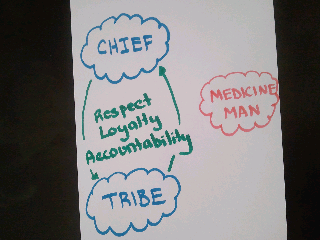Last week I participated in the inaugural #edchatNZ conference at Hobsonville Point Secondary School. 2 days, 300 teachers, inspiring conversation and challenges to keep me thinking.
It was AWESOME!!
After a week to reflect, the following are the thoughts which resonate with me most strongly;
I've found a place in the NZ Professional Learning Network.
A few years ago I really started investing in my professional development by seeking out and attending all different types of professional learning on offer. But the truth is, I had to force myself to attend these events. I felt uncomfortable. I didn't know anyone. I loathed the small talk and the effort it took to try and engage people. But the #edchatnz conference was a time to reflect on just how much I've grown and how far I've come. No longer do I feel like an outsider, the conference felt like the meeting of friends, with time of reconnect, catch-up and meet a few new people. I'm so glad I persisted through the beginning discomfort of engaging in the NZ PLN because I'm reaping the benefits now - exponentially - and giving back too!
The Power of YES
I was lucky to be on the steering committee for this conference (a great experience in itself), which gave me some great insight into just all the things that came together to make this conference a success. And, in my opinion, by far what oiled the wheels was the answer "YES". Maurie Abraham said 'yes' you may host the conference at Hobsonville Point. Pam Hook and Mark Osbourne and Karen Melhuish-Spencer said 'yes' they would present - along with dozens of others. NEAL said 'yes' they would handle the banking side of things. Yes, yes, yes, yes ... people just kept saying yes and, as a result, the entire conference came together in 16 weeks. I have to tell you hearing 'yes' is so refreshing when many of us are so used to trying to circumvent the frequent answer of 'no' (frustration from which reduced more than a few teachers to tears during the conference). Its made me reflect on the conditions required for YES, of which there are a few. Firstly, Vision - Danielle had a vision she could articulate - the 'why should we hold a conference' was an easy selling point and the desire to chat, share and collaborate already demonstrated. Secondly, community voice - an organically created #edchatnz community was ready for a conference and in many ways Danielle was responding to #edchatnz voice! And finally, well, NZ educators are just awesome. My heart swells with pride when I see all the good will amongst teachers - plus their passion, willingness to collaborate and commitment to the best learning opportunities for our students. All in all it keeps me motivated to keep pushing for YES and believing that it doesn't need to be as hard as we often make it out to be.
So many more great things occurred during this conference - things which will have a lasting impact on my teaching practice .... but for now I think i'll just leave it there ....
 |
| #edchatNZ steering committee |
.jpg)

